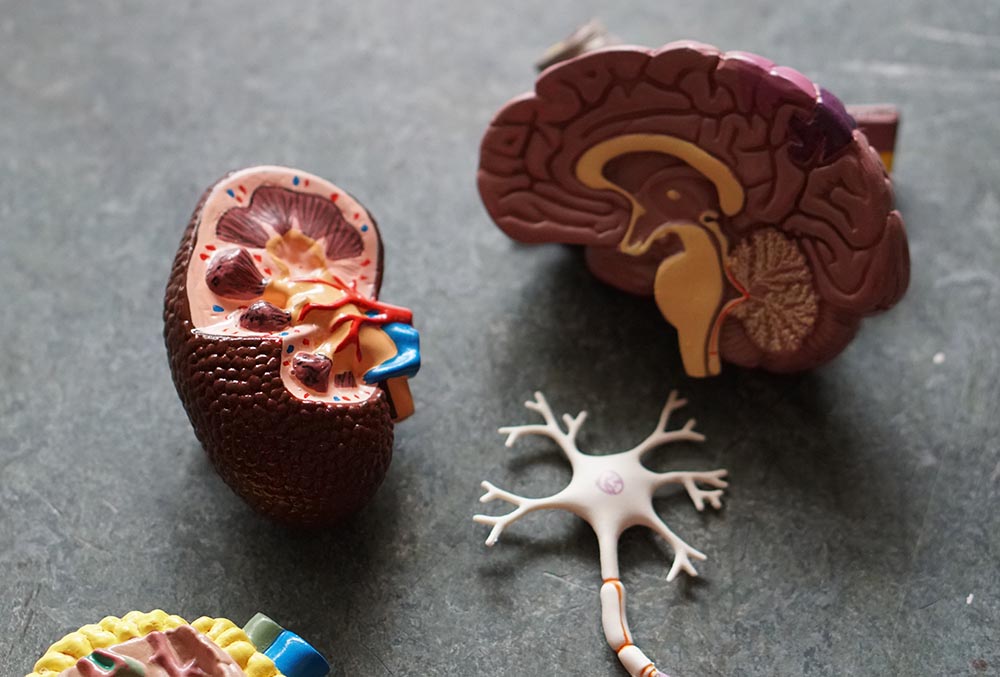Kidney Cancer Awareness
Kidney cancer is among the more common cancers in the United States, with approximately 73,000 new diagnoses and 14,000 deaths in 2020. With its prevalence, and oftentimes being hard for to patients to spot early, Comprehensive Cancer Centers appreciates the recognition of March being kidney cancer awareness month.
Increasing kidney cancer awareness is important as it is, indeed, a disease that can be confused for other ailments, and is often dismissed. This leads to later diagnoses, which makes treatment more difficult. Common kidney cancer symptoms include lower back pain on one side, unexplained weight loss, general fatigue, swelling in the ankles and legs, persistent fever not from an infection. Anyone experiencing any of these symptoms should consult a physician immediately.
Causes of Kidney Cancer
It is believed that smoking and lack of exercise is a risk factor contributing to kidney cancer, as is the misuse of certain pain medicines, including over-the-counter drugs. Misuse of over-the-counter drugs comes from people not following product guidelines with easily available medicines and self-administering higher doses and in more regular intervals than is safe. With any drug purchased on your own at your local pharmacy or grocery store, be sure to consult the pharmacist for complete guidelines for use.
In addition to smoking, lack of exercise and using over-the-counter drugs, certain genetic conditions, such as von Hippel-Lindau disease, may increase a person’s risk of developing kidney cancer. People with family members, especially siblings, who have had kidney cancer are at an increased risk. Risks are also higher for people with high blood pressure, as are those who have an advanced kidney disease and need to be on dialysis.
Screenings and Diagnoses for Kidney Cancer
No test has been shown to lower the overall risk of dying from kidney cancer, so there are no recommended screening tests for kidney cancer in people who are not at increased risk. Kidney cancer can often be detected through imaging tests such as CT scans or MRIs for other illnesses, including gallbladder disease. However, for patients with increased risk of kidney cancer, imaging tests may be recommended to specifically screen for kidney tumors.
Treating Kidney Cancer at Comprehensive Cancer Centers
If kidney cancer is suspected, those diagnosed will be referred to a Comprehensive Cancer oncologist who will then conduct more in-depth tests to determine the appropriate treatment plan, should the initial diagnosis prove correct. If that is the case, and kidney cancer presents, there are a number of treatment pathways for the disease.
Surgery is the primary treatment option for most kidney cancers. Often, the tumor is removed, along with a small amount of surrounding tissue. In certain cases, an entire kidney may be removed. Systemic therapies offered by Comprehensive, including immunotherapy and targeted therapy may be used to treat kidney cancer. These are drugs given by mouth or injected into the bloodstream. If these treatments don’t work, or are not as effective, chemotherapy may be used for kidney cancer treatment.
Radiation therapy, on the other hand, is not a common a treatment as kidney cancers are highly sensitive to radiation. Radiation may be used in patients not healthy enough for surgery, or as a palliative treatment option to ease pain.
Get Involved During Kidney Cancer Awareness Month
Given how common kidney cancer is, and how tough it can be to detect, getting involved in efforts such as kidney cancer awareness month offers everyday people the chance to make a real impact. Fortunately, the American Cancer Research Association (AACR) has detailed resources for how you can get involved. These include:
• Volunteering is a good way to learn more about the disease support the AACR
• Creating connections and motivating donations can help as well
• You can set up or participate in an event to raise awareness and funds
• Your company can partner with the AACR to engage employees, customers, and the community while supporting cancer research
• Advocate and let elected officials know you support increased funding for lifesaving cancer research.
• Share your story and inspire, educate, and comfort others by sharing your cancer journey or your experience caring for a loved one
• Donate and put funds in the hands of scientists working on breakthroughs in cancer research
Clinical Research for Kidney Cancer
At Comprehensive Cancer Centers, research and the participation in clinical research trials is a vital part of our mission, and these efforts extends to those with kidney cancer. Comprehensive physicians are dedicated to finding new ways to treat this disease. We offer our patients access to groundbreaking clinical research close to home.
Comprehensive Cancer Centers Can Help
Physicians at Comprehensive Cancer Centers provide a variety of treatment options for kidney cancer including chemotherapy, radiation therapy and clinical research, if applicable. To schedule an appointment with the team at Comprehensive, please call 702-952-3350.
The content is this post is not intended to be a substitute for professional medical advice, diagnosis, or treatment. Always seek the advice of qualified health providers with questions you may have regarding medical conditions.



